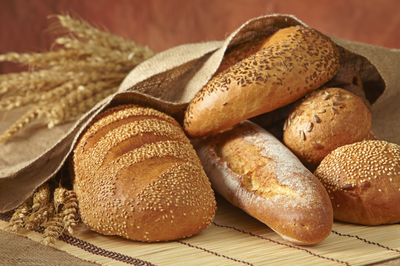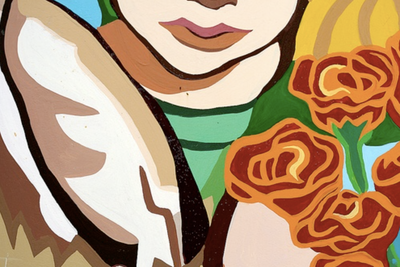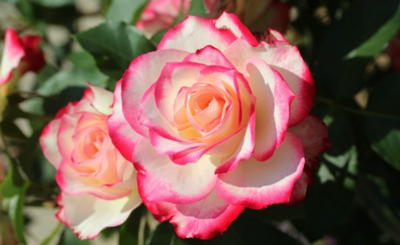|
It’s been a rough week.
I’ve been praying for a break from non-stop coronavirus coverage on the news, but this was not what I had in mind. How do we make sense of all this? And what is our call as Christians – Christians who, as part of our baptismal promises, have promised (and will do so again shortly) to strive for justice and peace and respect the dignity of every human being? The only place I know to go is to scripture. What does scripture tell us about God’s desire for Christian community? What does scripture tell us about God’s desire for this world? Today is the Feast of Pentecost. It’s sometimes called the church’s birthday. We celebrate the moment when the disciples were driven out of a locked room where they were hiding in fear by the Holy Spirit - and moved out into the world. Now, this story might have been a little hard to understand, because we didn’t hear it today in English. Instead, we heard it read for us in French, Polish, German, Russian, Estonian and Farsi. But what our multilingual reading models for us is what happened on that first Pentecost. Hear the relevant part in English: Now there were devout Jews from every nation under heaven living in Jerusalem. And at this sound the crowd gathered and was bewildered, because each one heard the disciples speaking in the native language of each. Amazed and astonished, they asked, ‘Are not all these who are speaking Galileans? And how is it that we hear, each of us, in our own native language? Parthians, Medes, Elamites, and residents of Mesopotamia, Judea and Cappadocia, Pontus and Asia, Phrygia and Pamphylia, Egypt and the parts of Libya belonging to Cyrene, and visitors from Rome, both Jews and proselytes, Cretans and Arabs—in our own languages we hear them speaking about God’s deeds of power.’ This story of the first Pentecost tells us that from the beginning, God imagined a church that was diverse. Through the power of the Holy Spirit, God sent the news about Jesus out into that incredibly diverse gathering representing what we would call today – the Middle East, Europe, Asia, and Africa. Just a relatively short time after that first Pentecost, Peter is called to the home of a Roman centurion – a leader in the occupying Roman Army. To make a long story short, that soldier named Cornelius could have killed Peter. But, what he wanted was baptism. It’s one of the first instances of this nascent Christian movement spreading from Jewish followers of Jesus to Gentiles - the people good Jews sometimes called dogs. And what does Peter say in response, “Truly I understand that God shows no partiality….” In other words, God welcomes you, my enemy. The apostles and other believers weren’t impressed with Peter’s decision to baptize Cornelius and his household. But Peter says this: And I remembered the word of the Lord, how he had said, “John baptized with water, but you will be baptized with the Holy Spirit.” If then God gave them the same gift that he gave us when we believed in the Lord Jesus Christ, who was I that I could hinder God?’ When they heard this, they were silenced. And they praised God, saying, ‘Then God has given even to the Gentiles the repentance that leads to life.’ By the time of the Nicene Creed, in the year 325, Christianity has spread and could be found across the known world. Buckle up - in: Jerusalem, Antioch, Alexandria, Asia Minor, Caesarea, Damascus, Greece, Thrace, Libya, Rome, Carthage, Southern Gaul, Italy outside Rome, Aquileia, Milan, Syracuse and Calabria, Malta, Salona, Seville, Roman Britain, Armenia, Ethiopia, Georgia, Mesopotamia and the Parthian Empire, Persia and Central Asia, the Arabian Peninsula, and Nubia. Talk about diversity! The final book of the Bible, Revelation, also shows us this vision: John of Patmos writes: I saw no temple in the city, for its temple is the Lord God the Almighty and the Lamb. And the city has no need of sun or moon to shine on it, for the glory of God is its light, and its lamp is the Lamb. The nations will walk by its light, and the kings of the earth will bring their glory into it. Its gates will never be shut by day—and there will be no night there. People will bring into it the glory and the honour of the nations (Rev. 21:22-26). Now, lest we think that this desire for diversity is some Christian anomaly, hear this from the prophet Isaiah: On this mountain the Lord of hosts will make for all peoples a feast of rich food, a feast of well-matured wines, of rich food filled with marrow, of well-matured wines strained clear. And he will destroy on this mountain the shroud that is cast over all peoples, the sheet that is spread over all nations; he will swallow up death for ever (Isaiah 25:6-8). What’s clear to me, reading scripture, is that God’s desire for the world and for God’s people is this: to live in peace (shalom) and harmony (loving-kindness). And to do so in the midst of our God-given and God-blessed diversity. So, how will we strive for justice and peace and respect the dignity of every human being, at this time? If, like me, you have been troubled by all that has happened to our siblings of color this week, that distress is actually a gift of the Holy Spirit. It means that the Holy Spirit is using this news to speak into your heart, to act in some way, just like she moved those first disciples. Each of us needs to prayerfully ask the Holy Spirit what she is motivating us to do. Holy Spirit, to what are you drawing my attention? Holy Spirit, how are you igniting my passion to act? Holy Spirit, how can I strive for justice and peace and respect the dignity of every human being? Some options might include:
On this Pentecost, we celebrate the diversity of the church. We celebrate the gift of diversity in creation. We celebrate the Holy Spirit, who drove those first disciples out of their locked room and into the world. And we celebrate that same Holy Spirit who calls us to strive for justice and peace and to respect the dignity of every human being, in order to achieve God’s vision for a beautiful and diverse creation. Amen.
1 Comment
11/12/2020 03:41:34 am
This pandemic is not something that we can joke about. It used to be like that at first, but it has been crazy. There are people who have no idea just how many lives were destroyed because of this. I understand that there are people who have no idea how we can change this, but that is why it is important that we change that. We have to look for ways to change the way that we are handling this.
Reply
Leave a Reply. |
AuthorI'm Fran Gardner-Smith. I'm an Episcopal priest, a wife, a grandmother, a feminist, a writer, and an artist. Archives
April 2020
Categories |
Proudly powered by Weebly



 RSS Feed
RSS Feed